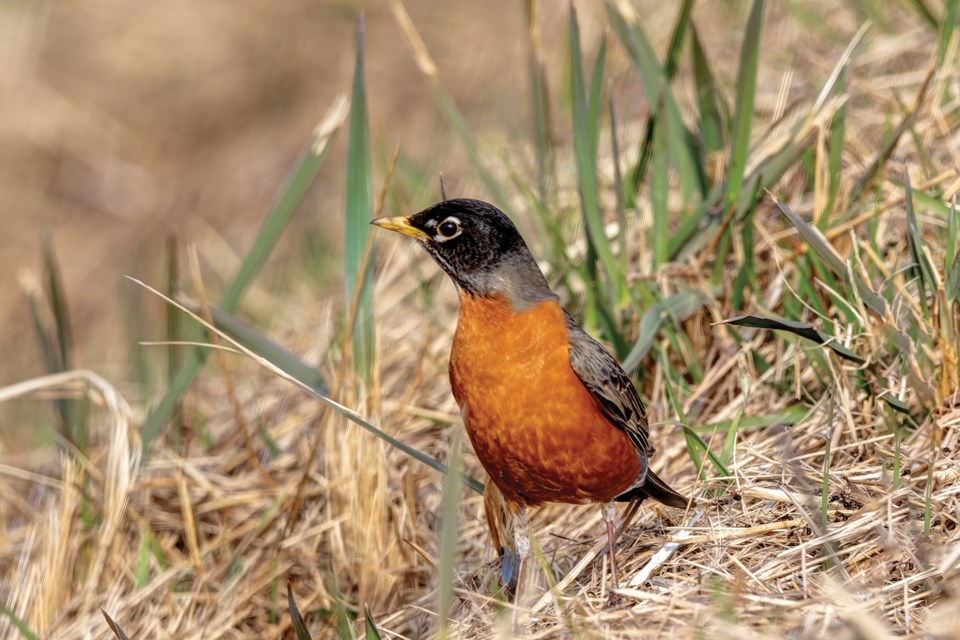It’s already the second half of January, the weather is warm and wet, and most people probably hope that winter is behind us in terms of snow and sub-zero temperatures. After winter comes spring, and the first signs of that happy season will soon be evident in our blessed domain, as bulbs push through the wet earth and leaf litter. In the bird world, the first signs of the coming season will be evident to the observant.
One of the first signs that I hear is a change in the vocalisations of robins as dusk approaches. The birds call-notes suddenly have an upbeat urgency, an enthusiastic clucking, that I don’t hear in the depths of winter. It is also a sound that I associate with the lengthening days as daylight pushes back past 5 p.m. People often refer to the sight of the first January robin as an indicator of springtime. That folk wisdom may be applicable on the Prairies or Ontario but should not be used here as we have robins year-round. It is true that robins can be quite scarce in December and early January but they begin to move back here in late January and after mid-February and through March the trickle turns into a torrent of thousands of birds.
Another early sign of spring to listen for is the boring, repetitive, “zu-weep” song of Hutton’s vireo, but the bird seems to only be motivated to sing on sunny days. Song sparrows are also early singers, and they seem to require both sunny and warm days. By mid-February Pacific wrens may begin to sing from the forest floor. The definitive sign of spring on the Sunshine Coast is the appearance of the first swallows, and they arrive in a good year about March 7, so not too long to wait.
There have been a few notable local birds this January. Top of the list is a rare clay-coloured sparrow that has been wintering around the Wakefield development in West Sechelt. Another rarity, a swamp sparrow, was in the wetland at Sargeant Bay early in the month. Less rare were a northern shrike at Gospel Rock and Townsend’s solitaire at Roberts Creek jetty. American goldfinches and red crossbills have remained fairly common all winter. On the water, ancient murrelets were abundant early in the month with 1,100 off Pender Harbour and 330 off Roberts Creek.
To report your sightings or questions contact [email protected] or 885-5539. Good Birding.



